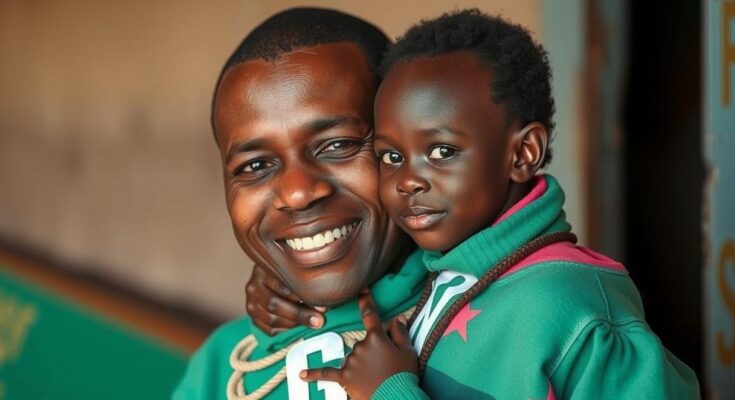South Sudan is experiencing an influx of individuals with disabilities due to the ongoing conflict in Sudan, placing immense pressure on its limited healthcare resources. The Physical Rehabilitation Reference Centre in Juba is providing vital support to both South Sudanese citizens and refugees by offering prosthetics and rehabilitation services. Amidst increasing demand, the center is focused on societal reintegration and empowerment of affected individuals through sports and economic initiatives.
South Sudan is currently facing significant challenges as it accommodates an increasing number of individuals with disabilities, particularly those who are victims of conflict from the neighboring country of Sudan. This growing demand for rehabilitation services, such as prosthetic devices, is overwhelming South Sudan’s limited healthcare resources, which include only three specialized orthopedic centers. One such facility, the Physical Rehabilitation Reference Centre in Juba, is meeting the needs of both South Sudanese and refugees seeking assistance after enduring the ravages of war.
Ladu Jackson, a 23-year-old amputee footballer, exemplifies the resilience of those affected by disability. After losing his leg in a road accident at the age of nine, Jackson utilized crutches to navigate life until he discovered amputee football in 2021. “I didn’t know there was something called amputee football. I was just thinking, ‘I wish my leg was not amputated’ because I loved playing football so much,” he shared, reflecting on his journey. The Juba-based center, established in 2009 with the support of the International Committee of the Red Cross (ICRC), has been pivotal in providing both rehabilitation and prosthetics to individuals in dire need, including refugees from Sudan.
The center’s director, Uwar Bosco, noted the rise in clients due to both rising conflict and traffic accidents. Refugees like Adam Ahamed Mohamed, who fled Sudan after suffering severe injuries, attest to the center’s life-changing impact. After losing a leg and undergoing amputation at a local hospital, Mohamed received a prosthetic limb and began his journey towards rebuilding his life.
James Ochan, a disability inclusion adviser, reported that from January to October this year, the center registered 2,549 new patients, attributing the exponential rise primarily to the escalating conflict in Sudan. Efforts are underway at all entry points between the two nations to address the urgent needs of incoming refugees, underlining the necessity of the international community’s support in this crisis.
Acknowledging its commitments, South Sudan ratified the U.N. Convention on the Rights of Persons with Disabilities in February 2023, marking a critical step toward ensuring equal rights and reintegration opportunities for persons with disabilities. Beyond providing prosthetics, the center focuses on helping individuals like Jackson and Mohamed find their place in society once again. As James Ochan articulated, “After rehabilitation and fitting with devices, they need to go back home or into society to start anew.”
Furthermore, the center promotes various sports, such as wheelchair basketball and amputee football, to foster normalcy and facilitate economic empowerment through entrepreneurial initiatives. South Sudan is also in the process of enacting a disability act which aims to solidify the rights of persons with disabilities, thereby enhancing societal inclusion for affected individuals.
The conflict in Sudan has led to a significant influx of displaced individuals, many of whom have acquired disabilities. South Sudan, already grappling with its own history of conflict, is now faced with the dual challenge of integrating these new arrivals while simultaneously addressing the needs of its own citizens with disabilities. The existing healthcare infrastructure is under strain, requiring urgent attention and resources to meet the rising demand for rehabilitation services, particularly prosthetic devices.
In conclusion, the challenge of accommodating an increasing number of individuals with disabilities in South Sudan is both urgent and demanding. The work being done at the Physical Rehabilitation Reference Centre is commendable, as it not only provides essential prosthetic devices but also empowers and reintegrates affected individuals within society. While the ratification of the U.N. Convention on the Rights of Persons with Disabilities paves the way for future advancements, continued support from the international community remains essential to address the health crisis exacerbated by regional conflict.
Original Source: www.voanews.com




